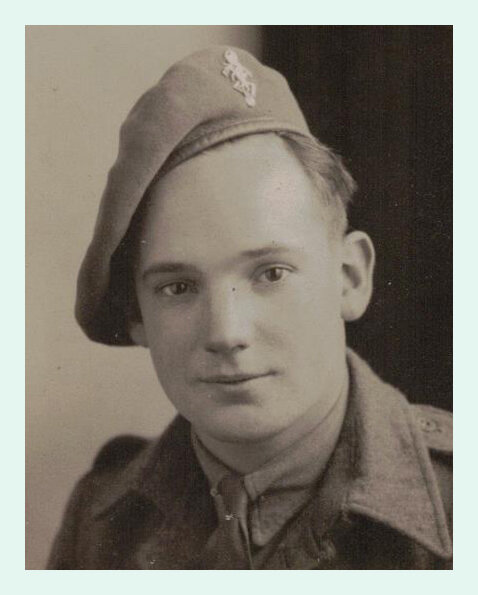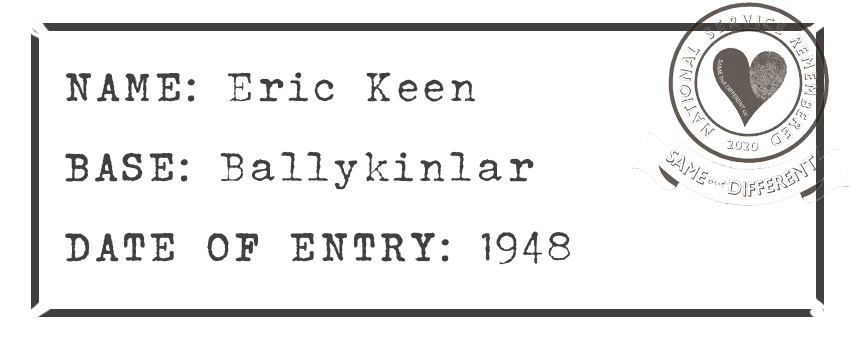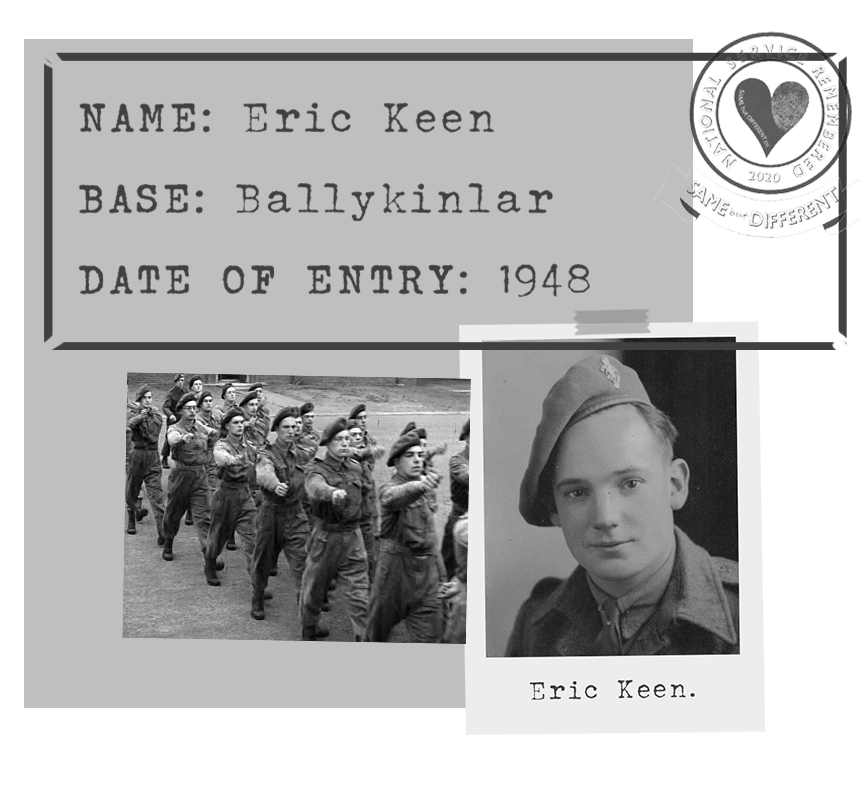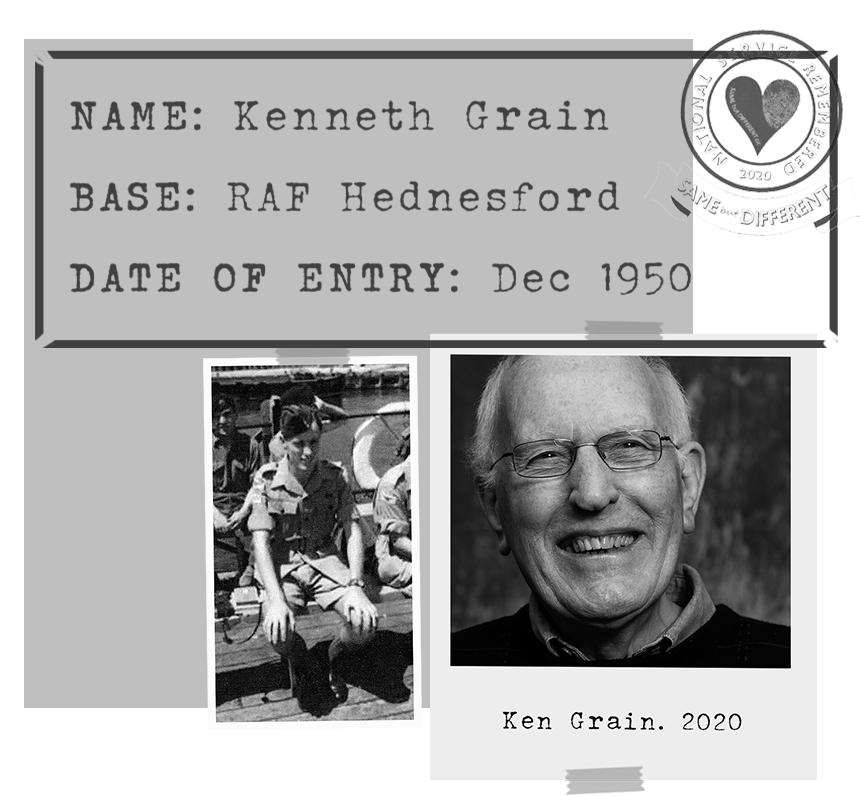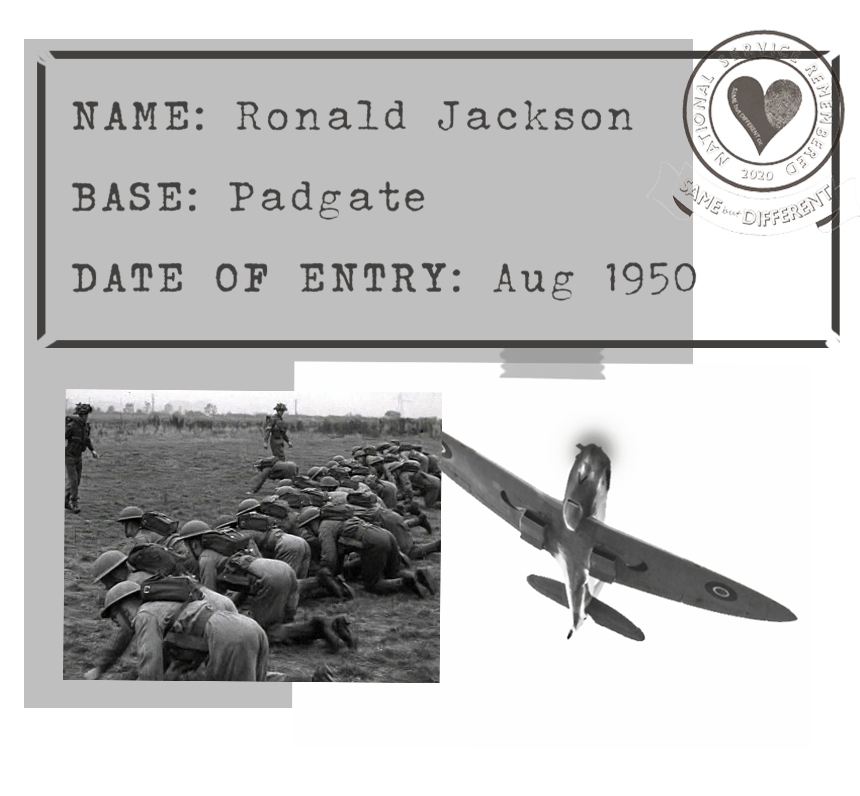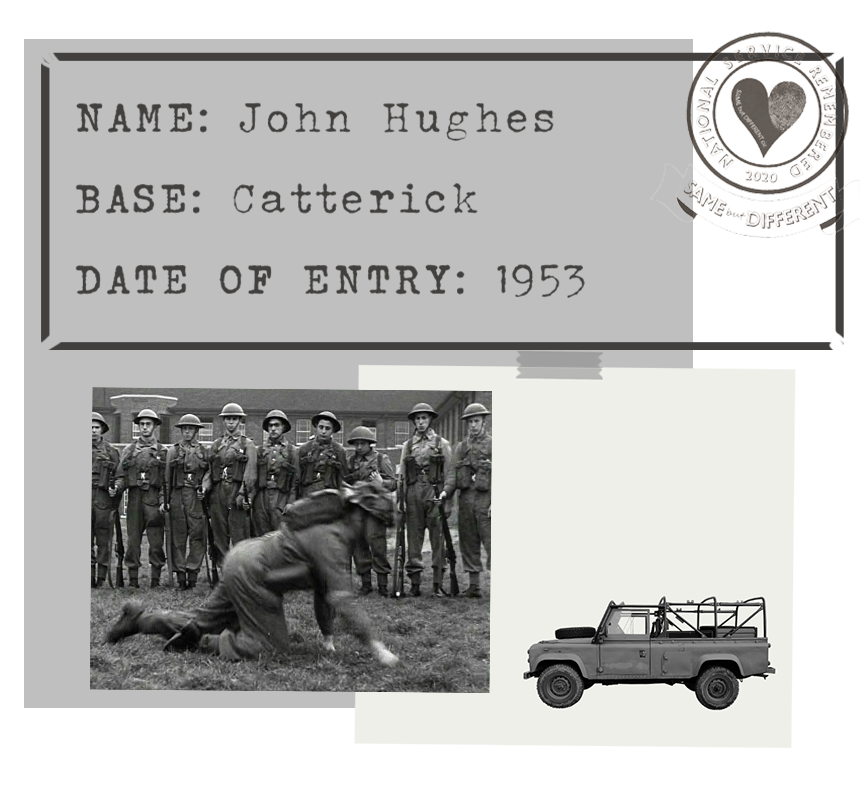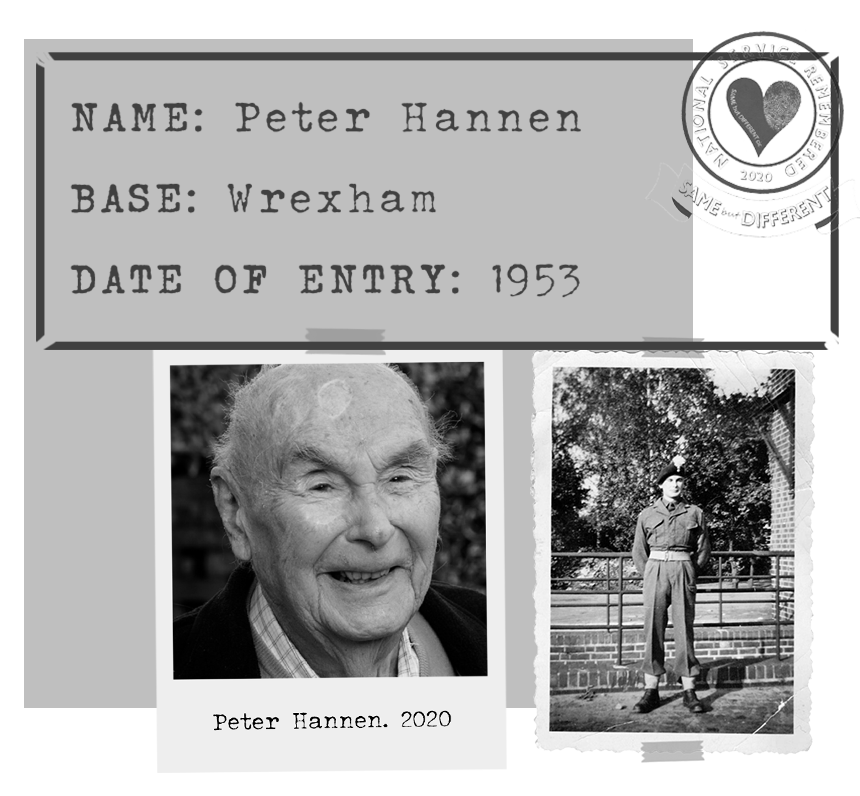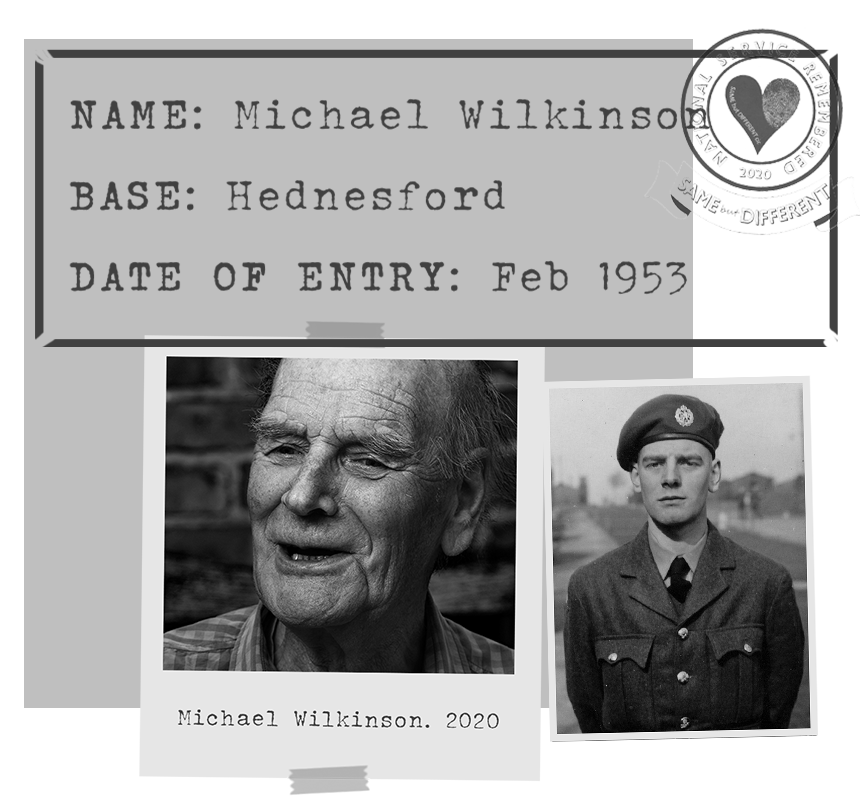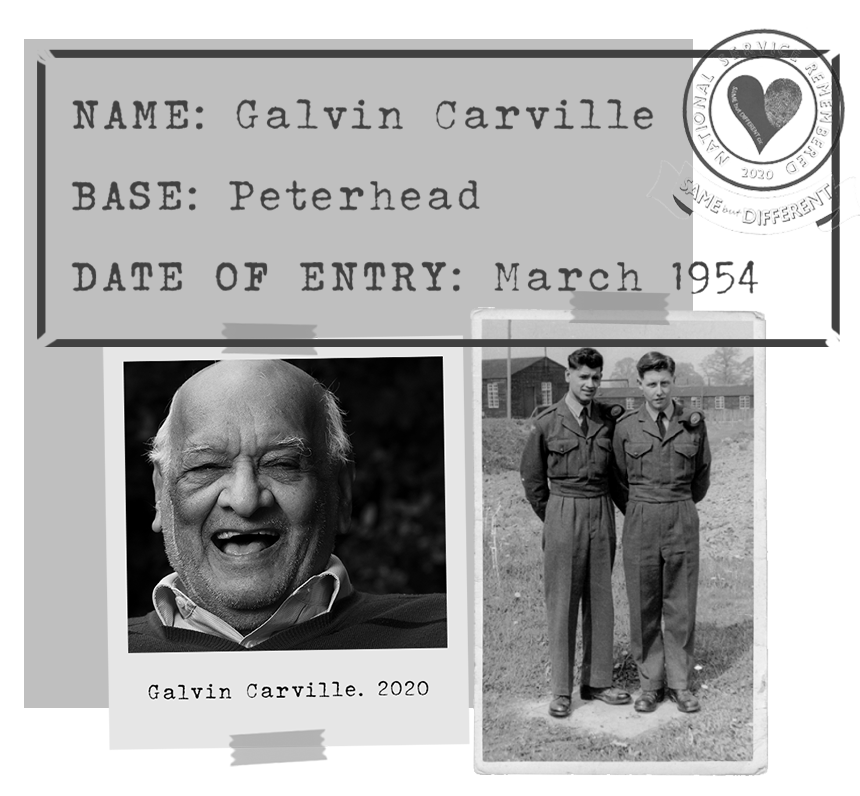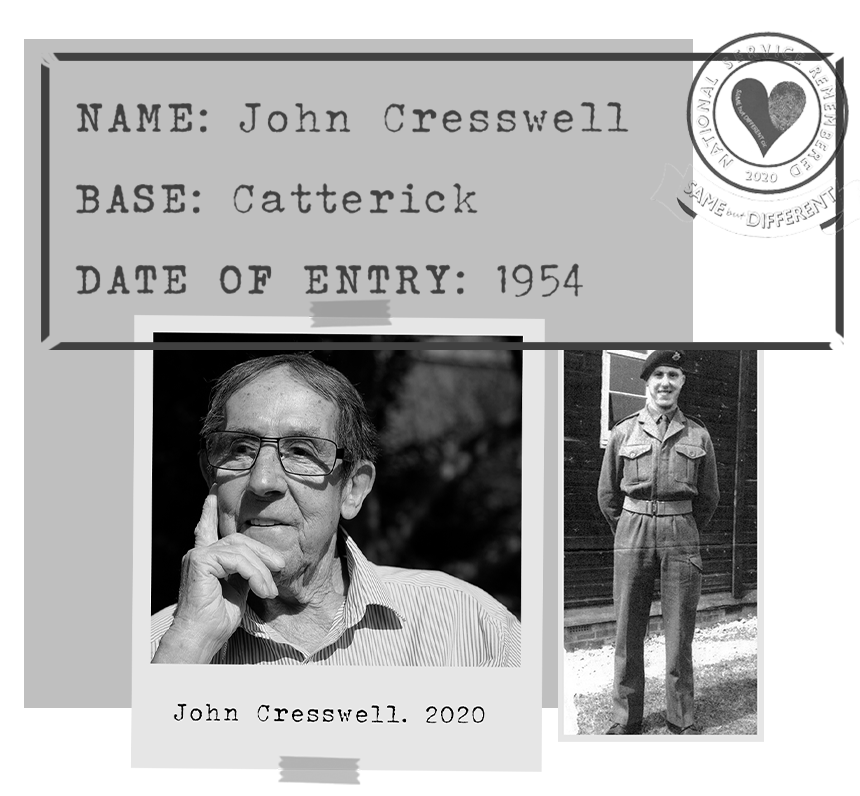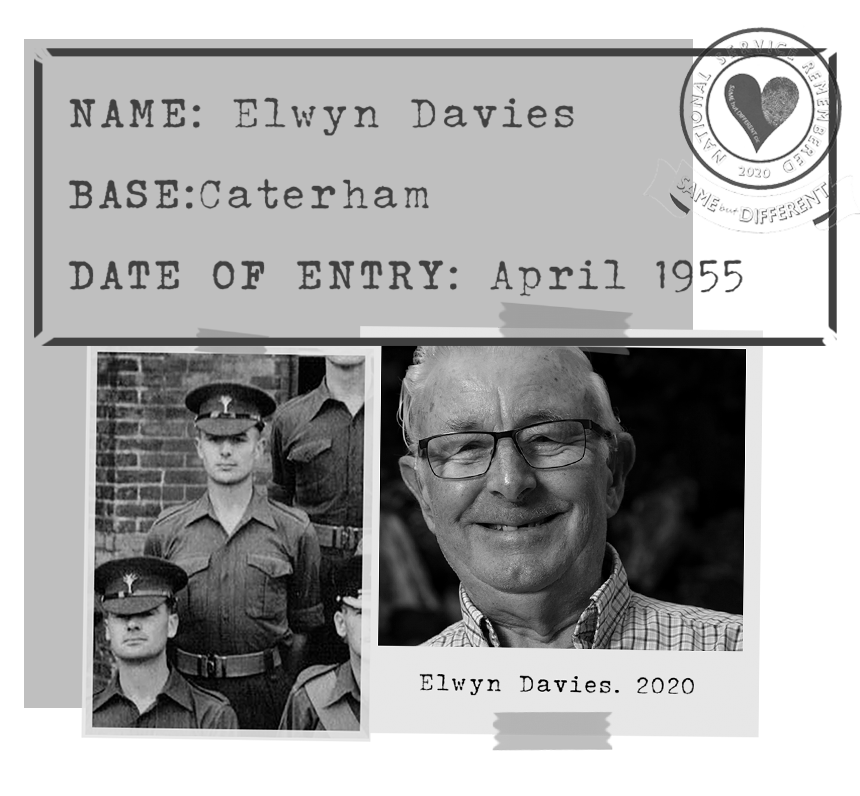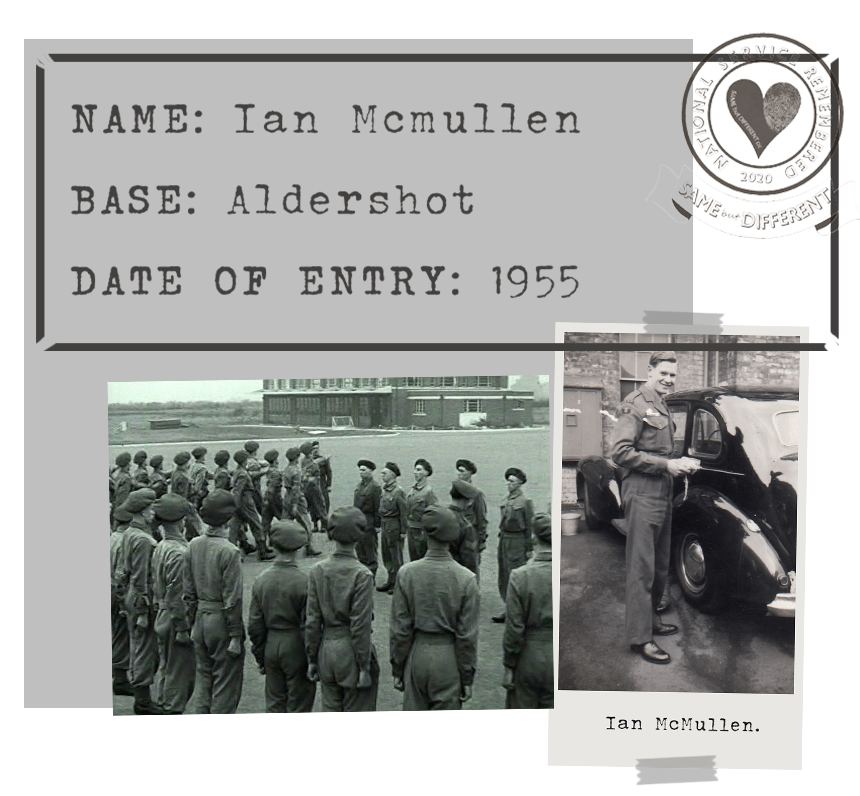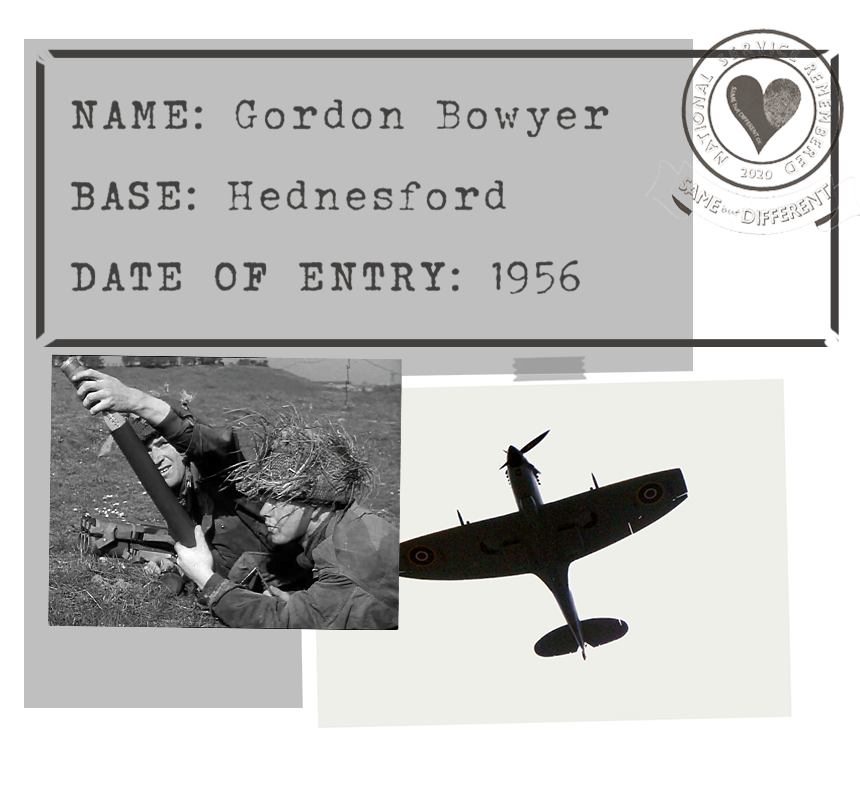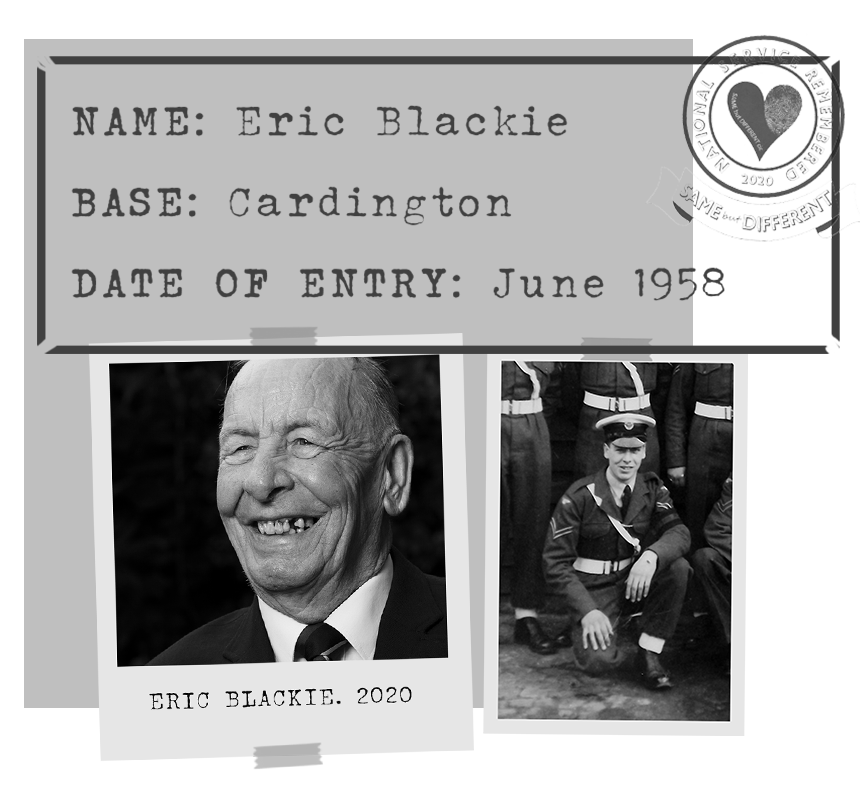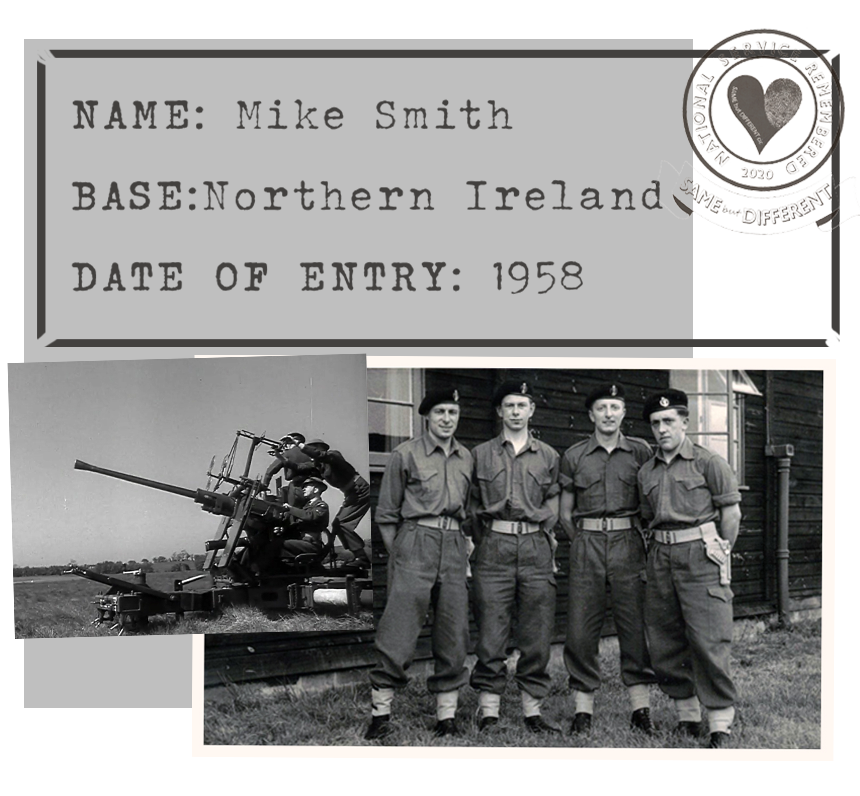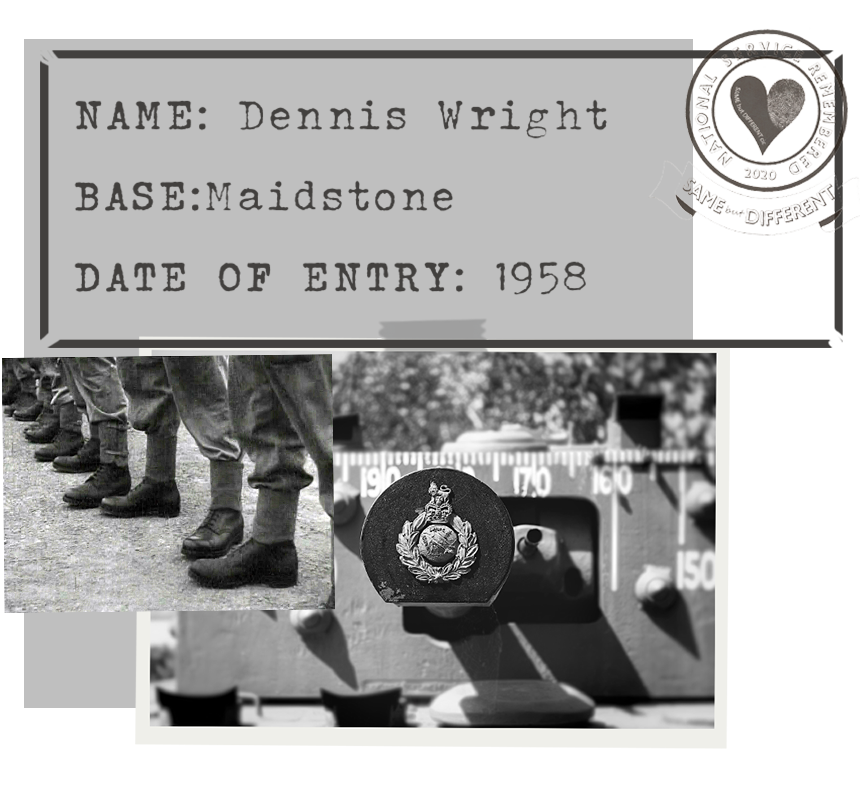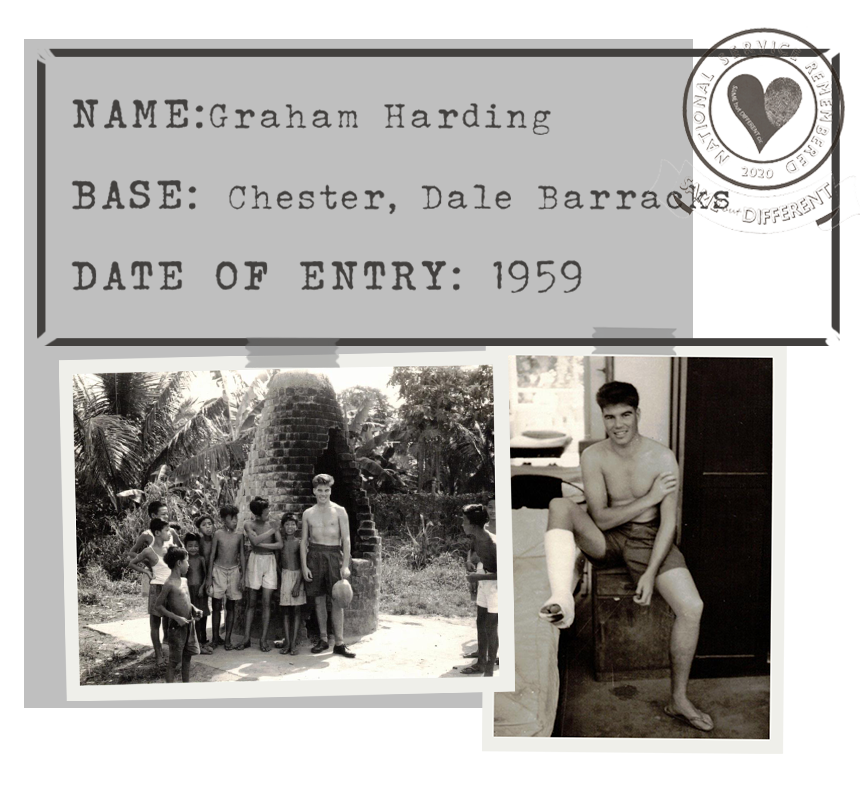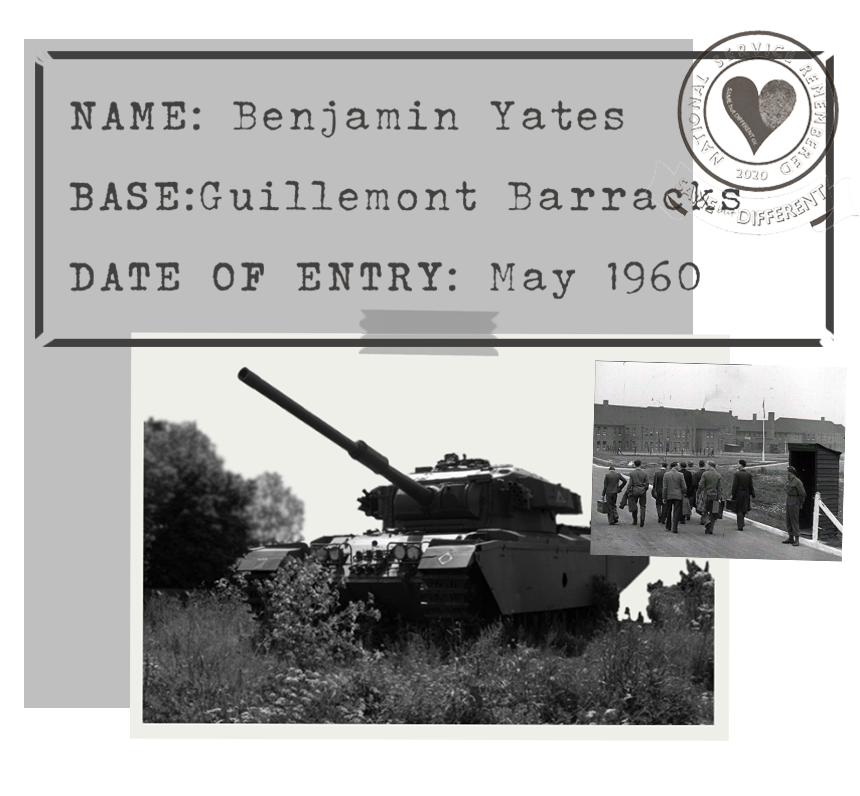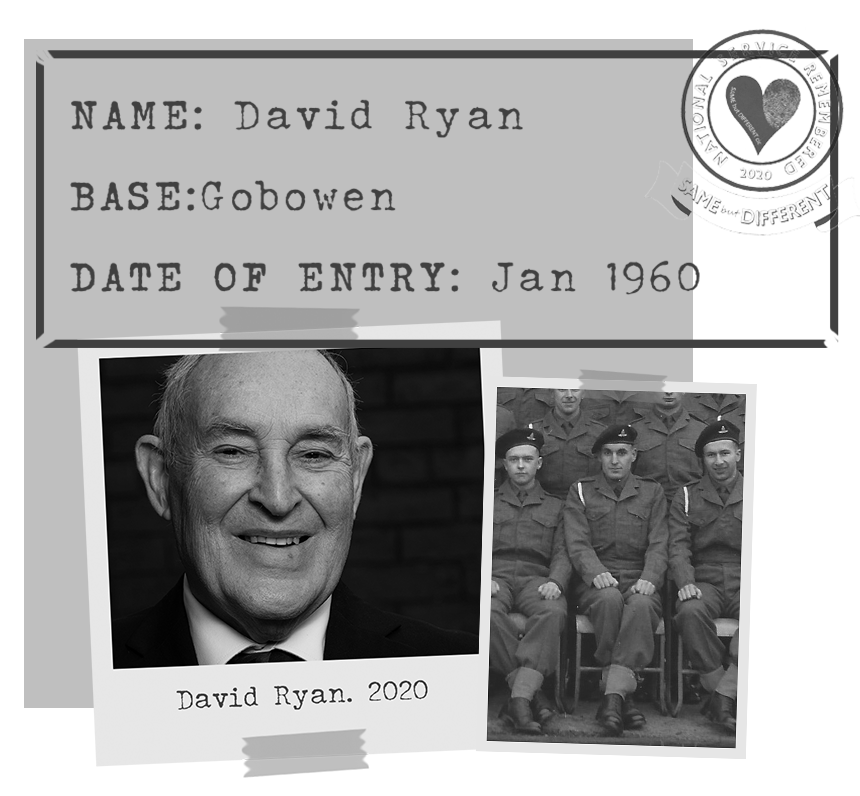“As soon as you jumped off the back of a wagon it was left, right, left right. It was non-stop.”
I was expecting the call, everybody of that period was.
You had to do two years and I did from 1948 to 1950. I was quite happy to do it though. It was a very good experience actually, and I went to about seven different camps in all. I trained in Northern Ireland with the Royal Irish Fusiliers, in the Infantry Regiment.
I did six weeks basic training in a place called Ballykinlar, a camp in County Down, right on the coast. It was a big camp, the main base for the Royal Irish Fusiliers, and a regiment called the Ulster Rifles.
As soon as you jumped off the back of a wagon it was left, right, left, right. It was non-stop and you go through all of the kitting out for your uniform, and all of your medical checks. Then you were off to the barracks’ room, to get your bed sorted out and to polish the floors. It was go, go, go really, all the time. I did guard duties, you each had to take a turn in guard duties. Of course, there was still the threat of the IRA, even then. You walked around a huge camp, at night, expecting all sorts of things to happen. Difficult for an 18 year old but it was a good experience, looking back on it.
“It was go, go, go really, all the time.”
I really enjoyed the comradeship I suppose. We were quite a mixed bunch - I was with a guy who was training to be a doctor and another guy who was a motorcycle mechanic. There were all trades, from all walks of life. For the first 24 hours, they weren’t going to obey any orders but you can’t say that to the Army. Within 24 hours they had them sorted out. At night, they had them running around the square with their rifles above their heads. You can’t afford to have people thinking they’re not going to do this and they’re not going to do that. It’s all to do with discipline and obeying orders. You just have to.
I was in the REME, mechanical engineers, at a camp in Warrington.
Whether it was because my brother had been in the REME in the war I don’t know, but that’s the regiment they put me in. So, I didn’t go into Infantry.
During that time, I went down to Reading (the REME headquarters), Woolwich and a place near Ormskirk which wasn’t far from home in Liverpool. I ended up as the Rations Storekeeper because the guy who was in charge of the stores had been fiddling. I was in what they called the instrument stores, and the next thing I’ve got to forget about the instruments and get on with the rations, all the food; I just had to work it out. I think there was about four hundred men and you had to pick out the rations and then every week we went up to Preston to collect all the foods.
We went to the NAAFI which had the luxuries, and then to the RAFC which had all the basics, so that in itself was quite an experience. But there were plus points because I was well in with the canteen, and we had our own quarters and officers’ mattresses which were obviously much different to the mattresses the ordinary soldiers had. If you were ordinary, you just had what they call ‘biscuits’ - three small mattresses with a blanket wrapped around them, and to keep them in shape was awful. But once I was put as Rations Storekeeper, I was given a posh mattress. It was really, really good. And of course I got well in with the lads in the cookhouse so I was alright for meals. I was excused of all the guard duties and I was even excused parades, being in charge of the ration stores. The NAAFI supplied all of what we called the ‘fancy goods’. I remember coming back from Preston and the girls in the NAAFI would give us all a swiss roll to eat on the way back to Ormskirk.
“I ended up as the Rations Storekeeper because the guy who was in charge of the stores had been fiddling.”
It was an interesting two years really, looking back on it.
Working in the ration stores, you’d meet all sorts of people because they had a lot of reps coming in from private companies, suppliers, and so I made a good relationship with people. My brother went in the RAF and he ended up as an Officer’s batman. He used to do their babysitting, he had a really cushy number.
I trained in stores and supplies so when I left, I then went over to work for Manweb, Electricity. I was at Trawsfynydd nuclear power station, the generation side, in stores again and supplies. That was an interesting job because you were in a position where you were ringing suppliers all over the country and they’d say ‘Trawsfynydd? Where’s that?’ and you’d build a relationship with the people you were ringing up. That was interesting work.
For a short time, I kept in touch with people but not for long.
It soon peters out. I used to see a couple of lads from Liverpool afterwards. One worked for a big motorcycling dealers in Liverpool, and after the war I had a motorcycle so I kept in touch with him. Another guy turned out to be a solicitor, and of course he knew all the rules. He could pull the wool over our Officer’s eyes, and because he trained to be a lawyer, he could run rings around them. A bit unfair in a way but that’s the way it was I’m afraid.
Coming from Liverpool, they’d expect you to be a football fan which I wasn’t, although my dad was a referee in the Shipping League. All the ships that came into Liverpool had their own football teams, but I had no interest in football.
My passion was cycling and of course it got you out and about, no matter the weather. I cycled mainly around North Wales and out into the peak district, Buxton and around there. We used to do night rides through the night. I always remember coming up the horseshoe pass in Llangollen and riding into the dawn, it was a fantastic feeling as the dawn breaks.
We used to do Sunday time-trials. You had to do 150 miles in so many hours. You had a big bag on the back of the bike with your flask, and on the handlebar at the front, in a bag, you had two bottles with drinks in, so you’d have a drink and eat your butties biking along.


